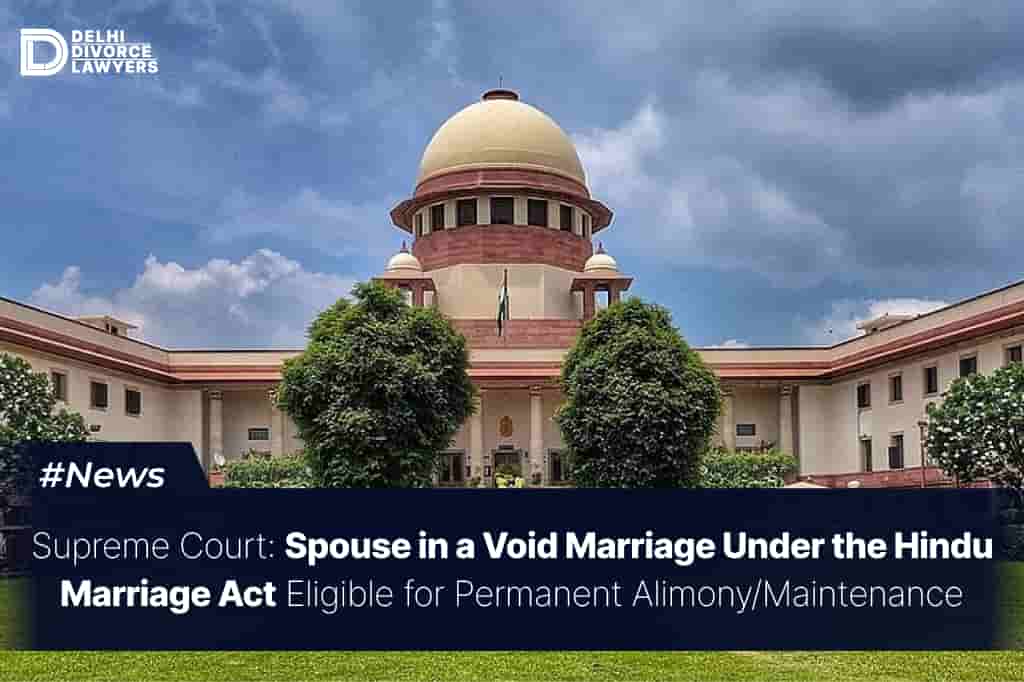The Court held that whether such relief of permanent alimony can be granted depends on the facts of each case and the conduct of the parties.
The Supreme Court has ruled that a spouse in a marriage declared void under Section 11 of the Hindu Marriage Act, 1955, is entitled to seek permanent alimony or maintenance from the other spouse under Section 25 of the Act [Sukhdev Singh v. Sukhbir Kaur].
However, the Bench, comprising Justices AS Oka, Ahsanuddin Amanullah, and AG Masih, emphasized that the grant of permanent alimony is discretionary and depends on the specific circumstances of each case, including the conduct of the parties.
The three-judge Bench was reviewing a reference made by a division bench in August last year. The key issue was whether permanent alimony could be awarded in cases where a marriage was declared void. While two previous judgments supported granting alimony in such cases, five others opposed it.
The Court analyzed the relationship between Section 11 of the Hindu Marriage Act, which addresses void marriages, and Section 25, which empowers courts to award permanent alimony or maintenance. Ultimately, it held that:
“While enacting Section 25(1), the legislature has made no distinction between a decree of divorce and a decree declaring marriage as a nullity. Therefore, on a plain reading of Section 25(1), it will not be possible to exclude a decree of nullity under Section 11 from the purview of Section 25(1) of the 1955 Act.”
The Court also differentiated Section 25 of the Hindu Marriage Act, 1955, from Section 125 of the Code of Criminal Procedure (CrPC), which grants courts the authority to award maintenance to wives, children, and parents.
“It (Section 25 HMA) confers rights on the spouses of the marriage declared as void under Section 11 of the 1955 Act to claim maintenance from the other spouse. The remedy is available to both husband and wife. The principles which apply to Section 125 of the CrPC cannot be applied to Section 25 of the 1955 Act. The relief under Section 125 of the CrPC can be granted to wife or child and not to husband,” reads the judgment.
The appellant’s counsel argued that applying Section 25 of the 1955 Act to void marriages could lead to “ridiculous” consequences. He presented hypothetical scenarios, such as a married woman deceiving another man into marriage or a daughter marrying her father. However, the Court emphasized that the statute contains safeguards to prevent such misuse.
“A grant of a decree under Section 25 of the 1955 Act is discretionary. If the conduct of the spouse who applies for maintenance is such that the said spouse is not entitled to discretionary relief, the Court can always turn down the prayer for the grant of permanent alimony…”
The Court thus held that spouses in void marriages have the right to seek permanent alimony or maintenance under Section 25 of the Hindu Marriage Act.
The second issue before the Court was whether a spouse, in a petition seeking a declaration that a marriage is void, could claim maintenance pendente lite (temporary maintenance during the proceedings) under Section 24 of the 1955 Act.
The Court ruled that Section 24 allows courts to grant interim maintenance if two conditions are met:
- A proceeding under the 1955 Act must be pending, and
- The court must determine that either the wife or the husband, as applicable, lacks sufficient independent income for their maintenance and necessary legal expenses.

